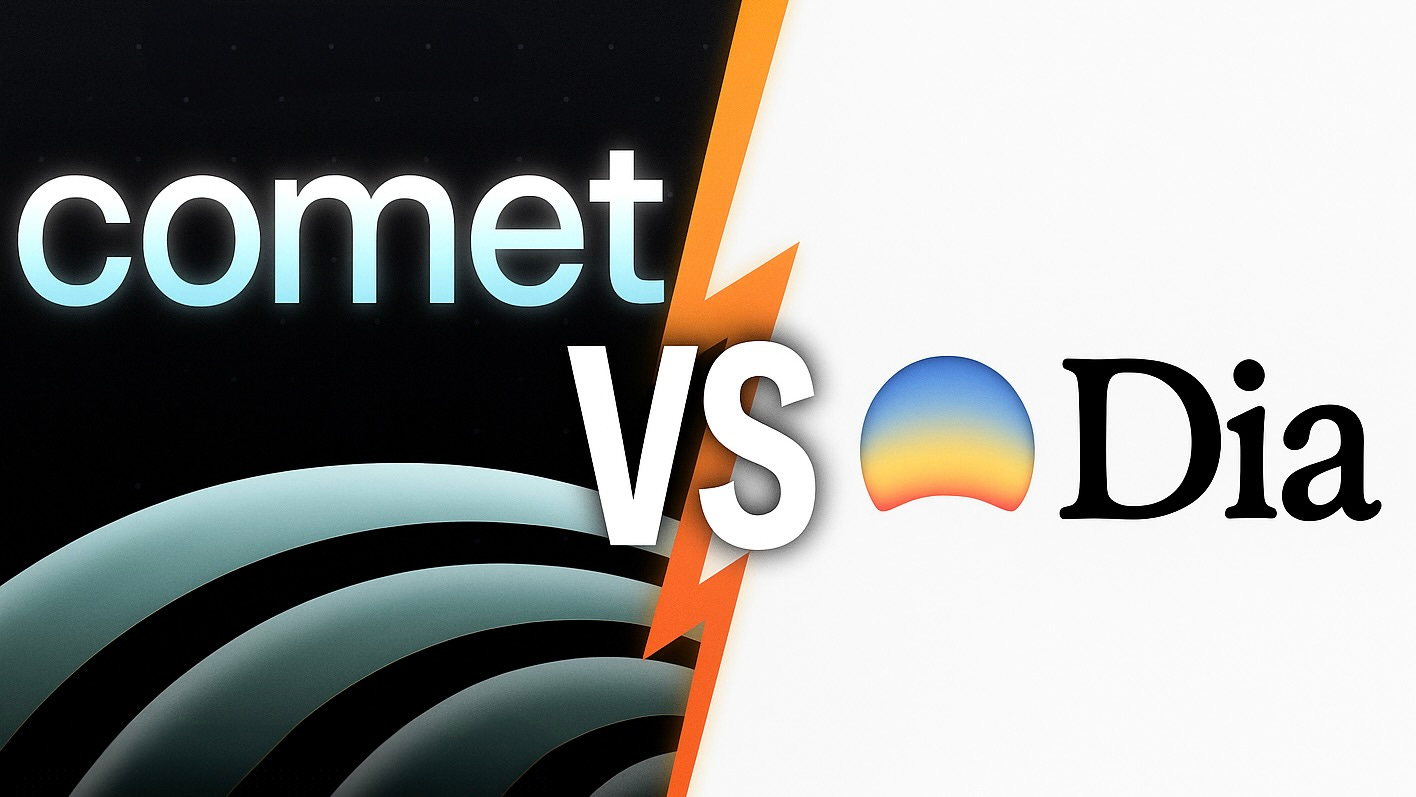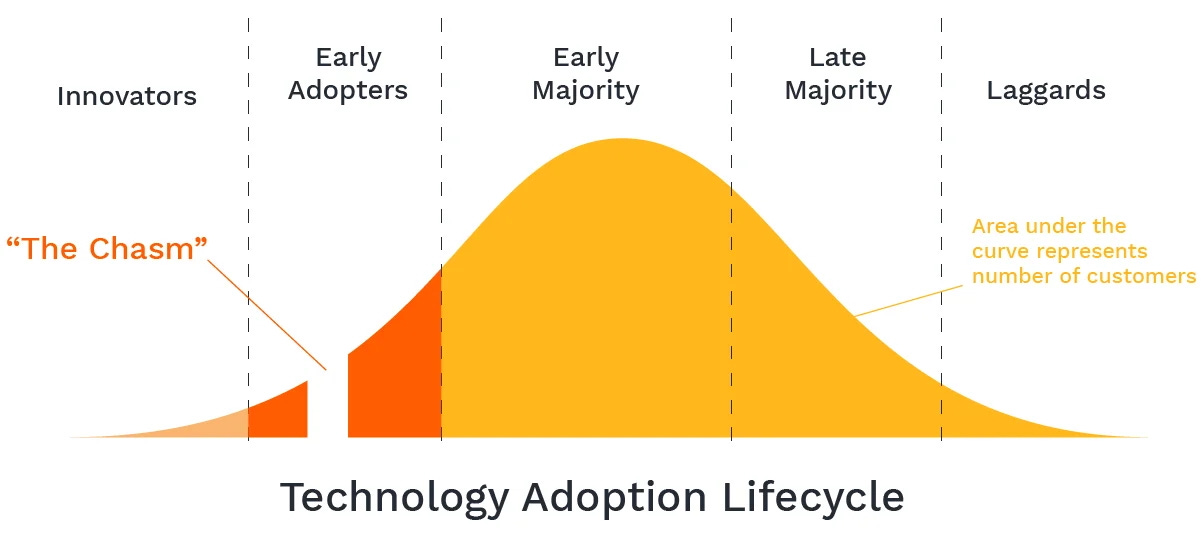Search is Dead. Long Live the Agent
A Deep Dive into the Rise of AI-Powered Browsers and What's Next
The way we interact with the internet is undergoing a quiet but fundamental shift. The traditional model of search, where we type something into Google, skim through Ten Blue Links, and manually dig through each page, is being displaced by something faster and more frictionless. AI-powered browsers like Perplexity Comet and The Browser Company’s Dia eliminate the middleman. You ask a question, you get the answer. No more bouncing around between SEO-optimized junk to find a nugget of truth.
That immediacy is only part of the story. The deeper shift is about where the intelligence lives. With ChatGPT or Claude, you still have to open a new tab, copy and paste some content, and work around the model. It’s detached from your workflow. AI browsers purport to fix this by embedding intelligence into your actual browsing experience. The browser becomes the assistant. That’s a critical shift, since most computing already happens in the browser. These tools aren’t just smarter search engines; they’re beginning to feel like the OS layer for modern work.
Nowhere is that clearer than in Perplexity’s new Comet browser. It doesn’t just find you a page, it works with the page you’re already on. Ask it to pull up a video clip of Steve Jobs talking about MobileMe, and it won’t just dump a YouTube link into your lap — it finds the keynote, loads it, and jumps to the exact timestamp. It feels a bit like magic.
Comet builds on what Perplexity already did well: real-time search, clean summaries, and transparent citations. But now those capabilities are paired with agency: the ability to execute, not just inform. It’s the first application I’ve played with that aligns with what people have been calling “agentic AI.” The intelligence doesn’t live in some separate chat window. It’s right there, baked into the canvas of the web.
While Comet is focused on acting on the open web, The Browser Company’s Dia takes a more introspective approach — it works within your browser environment. Instead of just crawling the internet for external answers, it pulls from your tabs, your history, your open apps. Ask it to summarize the five pages you’ve got open about a trip to Tokyo, and it will pull the highlights from each and build an itinerary. Need to check your calendar, grab availability, and draft an email? Dia can do that too, using your actual browser tabs as its data source.
That difference in orientation matters. Comet is reaching outward, trying to automate search and execution. Dia is looking inward, trying to amplify whatever it is you’re already doing. Comet might draft and paste your email in full. Dia will help you piece it together from your context, but stop just short of pushing it into the interface. It’s more assistive than autonomous. Dia almost feels shy, in a way. Dia will give you a draft and ask, “do you like it?” Comet is much more confident - it will click reply, fill in a draft, and send it if you ask it to. They have the same goal but clearly these are two very different philosophies about how far to push the agent. One just feels like an overconfident Type A first year consultant who thinks they can do anything and the other is a bashful intern. I’ve spent way too long thinking about this analogy.
Both are undeniably powerful. But neither is untouchable. And that’s where the bigger question starts to take shape. Are these full products in their own right — or are they just features waiting to be copied?
That question cuts to the heart of the current AI browser boom: is this the beginning of a seismic shift, or just a flashy wave of experimentation that Big Tech will absorb the moment it proves viable?
Right now, these feel like features, not full products. There’s nothing stopping Apple from integrating this kind of intelligence directly into Safari, or Google doing the same with Chrome. In fact, Google’s already working on something similar: Project Mariner, their browser-native agent. But from what I’ve gleaned from demoes, it’s flawed in a fundamental way: it spins up a sandboxed browsing environment, not your actual tabs. So it can’t access your login states, saved credit cards, browsing history, or personal accounts. That extra abstraction adds friction instead of removing it. It’s clever, maybe even too clever, but it misses the point.
What complicates things for Google even more is that it might not have the luxury of just buying its way out of the problem. Between DOJ lawsuits, EU regulation, and the looming threat of forced divestitures, Google’s dominance is under serious pressure. It might be forced to sell off parts of its ad tech stack. It might even have to spin off Chrome itself. And if Google loses control of both the search engine and the browser, then yeah, it’s vulnerable. Not immediately, but structurally. Because if it can’t own the place where people ask questions, and it can’t own the place where they find answers, what else is left?
The advantage Comet and Dia have right now is proximity: they live where the user already works. That’s powerful. But it’s not necessarily defensible. If Chrome or Safari or Edge rolls out the same kind of ambient intelligence natively — no install, no new app, no barrier to entry — the game changes overnight. And the most likely endgame for startups like these is acquisition. Except in this case, that kind of exit might not even be on the table. Google is tied up in antitrust litigation from here to Timbuktu. The chances that regulators allow them to buy a category-defining AI browser? Calling it a zero percent chance is being generous.
That leaves a thin path for survival: get big enough, fast enough, sticky enough, or die trying. (A bit dramatic, I know.)
Still, for all the hype around this category, we’re early. Right now, AI browsers are squarely in power-user territory. These tools are being adopted by people who already use GenAI daily, who know how to pick the right model for the task, who think in prompts. That’s not the average web user, not yet anyway.
But that’s how it always starts. Early adopters pull the tech forward, then the adoption curve hits the Chasm until an inflection point forces mass adoption. What triggers that shift in this case probably isn’t a viral demo — it’s distribution. If Apple were to buy Perplexity and bake Comet-like features directly into Safari, that’s the moment things flip. Suddenly, hundreds of millions of users have ambient AI by default, and the expectation shifts. That kind of integration would be especially potent on desktop, where Safari still trails Chrome. With AI as the wedge, Apple could start clawing back market share.
There’s a complication, though. Apple doesn’t make Safari for Windows anymore, so this kind of rollout would still be Mac-only. Unless it ships cross-platform, the power-user tools might stay siloed for a while longer. The more I think about that, the more I think that’s a benefit for the folks down in Cupertino. But the strategic logic is there — AI as the feature that reinvents the browser and tightens the ecosystem. Whether Apple or someone else moves first is an open question.
As the models themselves continue to improve, the question of which one you’re using starts to matter less. GPT-4o, Claude 3.5, Gemini 2.5 — they’re all converging toward a baseline of “good enough” for most general tasks. The intelligence is becoming commoditized. What actually differentiates the experience isn’t the model — it’s the product. Gee, that sounds familiar.
This is where Comet and Dia take different bets. Comet leans into openness. If you’re a power user, you can pick the right model for the job: research-heavy? Use Gemini. Coding task? Use Claude. This flexibility makes Comet especially appealing to people who already understand the strengths and weaknesses of different models. Dia, by contrast, leans into the User Interface. It’s not necessarily about which model is under the hood, it’s about how smoothly the experience integrates into your tabs, your browsing flow, and your day. (For the record, Dia uses either ChatGPT 4o or o3. The user is able to choose what model is undergirding their “Skills,” Dia’s branded custom instruction sets.)
Both approaches make sense. But they’re appealing to slightly different audiences. Comet is a tool for people who want to control the intelligence. Dia is a tool for people who want it to disappear into the background.
After seeing Stephen Robles’ most recent demo comparing Perplexity Comet, Dia, and ChatGPT Agent, one thing is clear: Comet leaves the others in the dust. Stephen walks us through Comet researching discount codes and actually testing them in a live cart — it works so well that users might finally ditch Honey (especially given Honey’s recent affiliate scandal). He also shows Comet scraping a government site to find the right form, interpreting analytics dashboards, doing a complex search and browse on LinkedIn, and browsing for homes on Zillow. It even had a moment where it tried (and failed) to beat Wordle faster than Stephen — a brief failure that makes it all feel a bit more real. It’s still in beta, after all.
But there’s a glaring drawback underneath the surface: privacy. Perplexity’s CEO has openly said that the Comet browser is meant to track everything users do online to sell hyper personalized ads” (TechCrunch). While some data is stored locally, users effectively sign away all of their browsing data in exchange for utility. That’s a massive tradeoff, but does anyone even care about that sort of thing anymore?
There’s also the compute cost. Comet’s promising utility comes at a price — each user action costs Perplexity real GPU dollars. That may explain the invite‑only beta and its slow rollout, even for paying customers. Unless Perplexity can monetize enough or scale efficiently, this may stay gated for a while.
Battery drain is another concern. Running multiple tabs with active AI agents in parallel could seriously wipe out some laptop batteries. Users might hesitate once they notice their machines heating up faster or lasting fewer hours between charges. Then again, people use Chrome all the time and that’s been a notorious battery hog for years.
Still, Perplexity Comet feels much further along than Dia in terms of its usefulness. It works today in ways mainstream browsers simply don’t. That being said, it’s not for everybody just yet. Unless you’re paying $200 USD per month, you have to join the waitlist. Time will tell if this browser war really starts to heat up, but it feels like it’s just getting started.
Perplexity Comet: 8/10 - Powerful, innovative, and a really promising start
Dia: 6/10 - Great UX, but trailing Comet in sheer capabilities
Another great demo of Comet:



